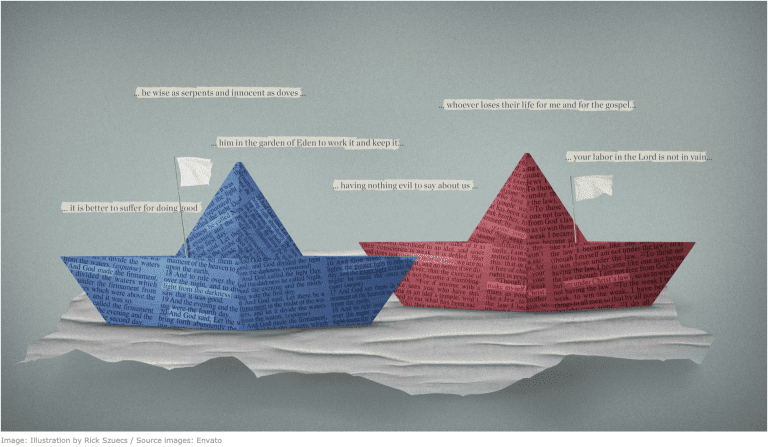 What is the meaning of the phrase “blood is thicker than water”? We’ve all heard this idiom, but are you sure you understand it? Search the internet for a while, and you’ll find out very quickly that its origins are anything but clear.
What is the meaning of the phrase “blood is thicker than water”? We’ve all heard this idiom, but are you sure you understand it? Search the internet for a while, and you’ll find out very quickly that its origins are anything but clear.
The Origins of an Idiom
Most people “know” that the phrase “blood is thicker than water” means that family relationships are more important than any other relationship. However, several writers challenge this common interpretation and even suggest that the idiom has the exact opposite meaning than we typically assume. Some people suggest that this phrase stems from the longer expression “the blood of the covenant is thicker than the water of the womb.” According to the latter, the blood one sheds with another in battle is of greater worth in knitting people together than any blood relationship.
Researchers have difficulty identifying the exact origin of this idiom because other languages and cultures have similar expressions. So we are unsure of the influence that those non-English idioms might have on our contemporary language. In the 1800s, H.C. Trumbull references another phrase “blood is thicker than milk” (a mother’s milk). He explains,
“We, in the West, are accustomed to say that “blood is thicker than water”; but the Arabs have the idea that blood is thicker than milk, than a mother’s milk. With them, any two children nourished at the same breast are called ” milk-brothers,” or “sucking brothers”; and the tie between such is very strong. […]
But the Arabs hold that brothers in the covenant of blood are closer than brothers at a common breast; that those who have tasted each other’s blood are in a surer covenant than those who have tasted the same milk together; that “blood-lickers,” as the blood-brothers are sometimes called, are more truly one than “milk-brothers,” or “sucking brothers”; that, indeed, blood is thicker than milk, as well as thicker than water.”
With these factors in mind, are you still confident that you understand the meaning of the phrase “blood is thicker than water”?
I hope not. Even if you can do an exhaustive search and synthesize your findings to draw a definitive conclusion about the meaning of this expression, you already will have made my point.
A Change of Meaning?
At this point, I fully expect someone to reply, “Why should we care? All that matters is what the expression means today.” And that reply illustrates a recurring problem or challenge facing biblical interpreters and missionaries.
Let’s assume, for example, that the idiom actually highlights the significance of close friendships over kinship. Therefore, what we now consider the expression’s meaning is not what the original speaker intended. Instead, we’ve merely grown accustomed to the idea that the idiom underscores the priority of familial relationships.
What if this same dynamic occurs when we interpret scripture or try to explain the Bible to people in other cultures?
How many concepts have we misunderstood because we assume that a word or expression meant for the biblical writers the same thing it means to us? A frequent example that I give is that of “law.” Current notions of law are distant relatives of the Hebrew concept of the Torah. It is an accident of language and translation that most English Bibles use the word “law” to translate Torah, which, and its written form, could be considered wisdom literature. Furthermore, Torah functioned as a covenant giving the people of Israel in national identity.
Likewise, modern Christians understand countless words (e.g., “love,” “conviction,” “conscience,” “slave,” and “faith”) through the lens of our contemporary culture and background. Most readers are unaware of the language found in ancient near eastern covenants forged between kings. The subordinate, conquered king would swear his “love” to a higher, suzerain king who is subjecting his nation. Sometimes the lower vassal king would be called a “son,” and the oppressive suzerain king would be called a “father.” Obviously, in this context, “love” does not refer to a sentimental emotion. At the very least, “love” signified honor and allegiance expressed in obedience.
We could go on and on with other examples. So often, the so-called “plain and obvious meaning” is nothing more than the meaning that we are accustomed to and familiar with. However, what we think is obvious often is anything but obvious. What matters foremost when interpreting the Bible is the meaning given to it by its original authors. Only then can we begin to wrestle with its significance for us.
Contextualization begins with interpretation. Let us be careful whenever we encounter a so-called “obvious” biblical text. Perhaps its meaning is straightforward. Then again, maybe it’s more complicated than that.
Photo Credit: Pixabay
















